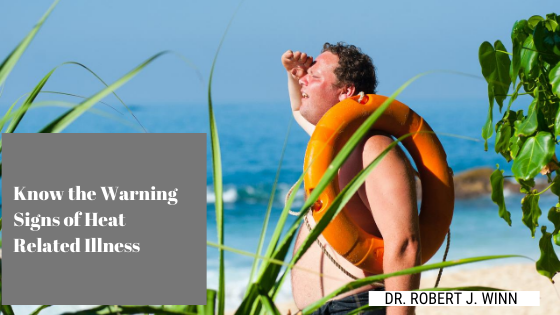When days get longer and temperatures creep upward, you have to be particularly vigilant about noticing the signs of heat-related illnesses and know how to combat them. While it is true that ailments caused by extreme heat are particularly harmful to the elderly or very young, the truth is that everyone needs to be on guard against these.
A very High Body Temperature
As a symptom that you have to be on the watch for, a spike in your body’s temperature can point to several different illnesses. It is an indicator that you are suffering from heatstroke, heat exhaustion, or even a bad sunburn. The immediate course of action is to try to change the temperature of the person’s environment. Move them to a cooler area, if possible.
Weakness, Tiredness or Lethargy
A little tiredness is considered normal, especially if the hour is very late or very early. However, if it is a constant state, it may be a symptom of a more significant, heat-related cause. If you feel a weakness that prevents you from performing your daily tasks, seek professional medical attention.
A Fast But Faint Pulse
Your heart’s ability to pump the blood you need to live is greatly affected by the presence of heat. If your pulse is faster than usual, but also barely there, you need to get some relief from the heat. Run a cool bath for yourself or place cold, damp washcloths directly on your skin. Both of these can lower the temperature of your body.
Do It Yourself Treatments
There are many things that you can do for yourself if you want to relieve the symptoms of a heat-related illness. The most obvious is to move into an adequately air-conditioned space, but in case that is not possible, applying cold water or cold objects to your skin ill also do the trick. To ease the pain, lowering the temperature of your body is imperative.
When to See a Doctor
If your heat-related ailment is mild enough, a doctor is not necessary. However, if you are suffering from something like a heat stroke, that is a medical emergency and needs immediate attention.


